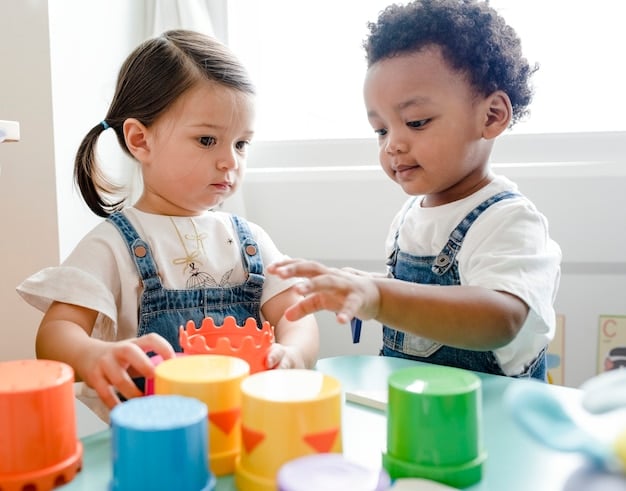Teaching Kindness in the Classroom

In today's fast-paced and technology-driven world, the significance of kindness in educational settings cannot be overstated. As #students navigate the complexities of social interactions, the need for #empathy and compassion becomes increasingly vital. Teaching kindness in the #classroom is not merely an add-on to the curriculum; it is an essential component of holistic education that fosters emotional intelligence and social responsibility. By prioritizing kindness, #educators can create a nurturing environment that not only enhances academic performance but also equips students with the interpersonal skills necessary for success in life. This article explores the importance of instilling kindness in students, providing actionable strategies for educators to cultivate a #culture of kindness that resonates beyond the classroom walls.
Teaching Kindness in the Classroom
Teaching kindness is not merely about encouraging polite behavior; it involves fostering a culture of empathy, compassion, and respect that can profoundly impact students' social interactions and emotional well-being. By embedding kindness into the curriculum and daily activities, educators can create a supportive and empathetic learning environment that benefits all students.
To effectively teach kindness in the classroom, educators can implement the following strategies:
-
Model Kindness: Teachers should exemplify kind behavior in their interactions with students and colleagues. This modeling sets a standard for students to emulate and reinforces the importance of kindness in everyday life.
-
Create a Kindness Curriculum: Integrate lessons on kindness into the existing curriculum. This can include discussions, activities, and projects that focus on empathy, cooperation, and community service.
-
Encourage Open Discussions: Facilitate conversations about kindness and its impact. Ask students to share their experiences with kindness, both giving and receiving, to help them understand its significance.
-
Use Literature: Incorporate children's #books that highlight themes of kindness and empathy. Reading stories that feature kind characters can spark discussions and reflections on how students can apply these lessons in their own lives.
-
Implement Kindness Challenges: Organize classroom challenges that encourage students to perform acts of kindness. For example, a "Kindness Bingo" game can motivate students to engage in various kind acts throughout the week.
-
Recognize and Celebrate Kindness: Acknowledge and celebrate acts of kindness within the classroom. This can be done through a "Kindness Wall" where students can post notes about kind acts they have witnessed or participated in.
-
Practice Mindfulness: Teach students mindfulness techniques that help them become more aware of their emotions and the feelings of others. Mindfulness can enhance empathy and encourage students to respond kindly in challenging situations.
-
Create a Safe Space: and support one another. This can be achieved through regular class meetings where students can discuss their feelings and experiences.
-
Engage in Community Service: Involve students in community service projects that allow them to practice kindness outside the classroom. This not only benefits the community but also reinforces the value of helping others.
-
Reflect on Kindness: Encourage students to reflect on their actions and the impact of kindness in their lives. Journaling or group discussions can help students internalize the lessons learned.
By implementing these strategies, educators can cultivate a classroom culture that prioritizes kindness, ultimately leading to a more positive and inclusive learning environment. Teaching kindness is an investment in students' emotional and social #development, equipping them with the skills they need to thrive in an interconnected world.
- Brighter Futures: Social Emotional Development
- Inclusive Montessori: Supporting Diverse Learners in the Classroom
- Supporting School Age Development ONLINE
- Technology as a Classroom Tool
- From Tantrums to Triumphs: Equipping Preschoolers with Self-Regulation Skills
- Engaging Families During a Pandemic
- Cultures in the Classroom
- Ways to Serve: Leadership
- Mastering Observation Techniques in the Montessori Classroom
- Exploring the World: Fun and Educational Social Studies Activities for Preschoolers
- Best Practices for Classroom Technology Integration, Screen Time Management, and Online Safety
- Nurturing Kindness: Raising Compassionate Children in a Complex World
- Teaching Kindness in the Classroom
- Sep 21 – International Day of Peace: Foster Harmony and Understanding in Your Classroom
- Mirror Mirror on the Wall: Whimsical Ways to Prevent Bullying Tendencies in Kids, Inspired by Fairy Tales
- The Thankfulness Tree: A Fun, Hands-On Thanksgiving Activity for Little Learner
- World Kindness Day: Inspiring Activities to Promote Compassion and Kindness in the Classroom
- How Educators Can Create Joyful, Inclusive Celebrations
- Kindness is King: Teaching MLK’s Principles Through Acts of Kindness
- 🌟Will You Be My Friend? Celebrating National Friendship Day in Early Childhood Classrooms
- 💡Beyond the Blocks: Building Quality in Early Childhood Programs
- Beyond the Ratios: Unlocking the Secrets to a High-Quality Childcare Center 🚀
- How Can We Teach Empathy, Kindness, and Cooperation Through Daily Routines?
- 🗣️ How Can I Talk to Parents About Bullying Without Blame or Conflict?🤝
- Early Childhood Education
- 🥦 How Can You Inspire Lifelong Healthy Habits in Young Children?